Many producers chose to bring regular instead of authoritative or authentic voices on to their programmes to discuss the issues surrounding the increased tensions between the African British and British Asian communities.
The Talking Africa show produced by journalist and presenter Henry Bonsu was one of a few which held a quality and informed debate. There was a deliberate focus on the alleged child gang rape and an attempt to seek answers behind the allegations. The panel discussed the background of the tensions between both the African and Asian community but recognised that this was not the catalyst of the violent clashes. The national media misrepresentation portraying the African community as both the instigators and aggressors was exposed by all participants.
The BBC missed a perfect opportunity to intelligently discuss the issues during Question Time. The programmes chair David Dimbleby spectacularly failed to challenge Edwina Curry’s malicious accusation that the African community was to blame for the clashes because we played the ‘victim card’. Instead he raised the topic of gang rivalry and invited the audience to conflate the issue with that of drugs and guns. Subsequently most of Curry’s blatantly anti-African comments received a round of applause from the non African audience. This was then followed by a stream of uninformed analysis and comment focusing on community tensions instead of the allegation itself, the media misrepresentation of the entire incident and the tragic murder of Isiah Young-Sam.
In a BBC Newsnight debate, Lee Jasper and Yasmin Alibhai-Brown clearly didn’t have a clue about the issues outside what they read in the national media, Brown believes that the African British community is ‘jealous’ of successful Asians. She suggested the way forward was for Asian shop keepers to give more ‘afro(sic) Caribbean’ boys jobs in their shops. Jaspers response was lacklustre, however he deserves credit for raising the issue of the murder of Isiah Young-Sam. The only constructive statement made by Brown was when she admitted the anti-African ideology that permeates the Asian community needed to be addressed.
On the Capital-Choice, Angie Le Mar show the studio guest Lord Victor Adebowale was invited to speak on the issue. He immediately blamed the African community for ‘irrational’ thinking, behaving violently and decided this was all based solely on jealousy of Asian businesses. In his opinion there wasn’t any other substantive underlying cause or justification for what occurred. There was no exploration of the alleged child gang rape or murder of the innocent Isiah Young-Sam. His simplistic myopic belief was that an African community which failed to take advantage of opportunity was the aggressor and that Asians were the poor victims of our irrational hate and envy. Incredibly a caller asked for more media suppression to help reduce tensions as a respected Birmingham community activist in the middle of the fracas was abruptly cut off for using harsh language obviously brought about by his close emotional involvement in the situation.
On BBC West Midlands, presenter Robert Beckford tackled the issue in his affable style. He initially sought to pass blame onto community radio stations and one presenter in particular for spreading unsubstantiated rumours but was exposed for ignoring the culpability of the BBC and its deliberate suppression, misrepresentation and ignoring of local news explicitly relevant to the African community in Birmingham. Whilst there was little focus on the silent victims (alleged child and Isiah Young-Sam) Beckford expertly hosted a heated debate that made for compelling listening despite Michael Davis-Bingham’s repeated claims that we owed the Asian community an apology.
On BBC LDN presenter Geoff Schumann took a different stance. Focusing on the tensions between African and Asian communities his programme looked at gauging the scale of the problem and seeking solutions.
In the Asian publication Eastern Eye they wrote; “Jealousy is definitely the problem. The Afro-Caribbean community are degrading themselves and it is affecting everybody… The people who spread the rumours are responsible for the riots. There is no proof of their claims…I think it is jealousy that has driven them to do this. Maybe they think they can get something back by rioting”.
In the New Statesman, Darcus Howe similar to a horoscope writer who has hit jackpot prophesises that “I was responsible for [a] broadcast on Channel 4 in August 2004. It was titled Who You Callin' a n word? I… have known for some months now that an explosion was imminent and that guns would be involved… I interviewed Pakistanis who waved images of Bin Laden in my face, making claim to territory in Walsall which, they said, would be little Pakistan in a few years' time… The West Indian youths were no less belligerent. They displayed stab wounds and warned of retaliation. When they mentioned guns, it was clear to me that this was not just bravado… A Punjabi businessman spat the most racist bilge about Caribbean blacks, the kind of language I previously heard from the British National Party. Young Asian women, mainly from the lower middle classes, spoke of a hierarchy - with them at the top and blacks at the bottom.”
Whilst More4 interviewed sweet old Miriam Fitzgerald who in relasion to tensions between African and Asian communities made such gems as “the problem with minorities is that they’ve always been there and have been allowed to fester and go unchecked” and with regards to community media outlets said “I think the rumour mill and the way its been allowed to go unchecked is an issue here”. She also disliked the idea of community leaders which she felt was ‘colonialist’. Bless.
The Truth
On a community radio station in South London, the highly respected presenter Bro Kwaku addressed all of the issues with callers who were in Birmingham giving eyewitness accounts of all the facts missing form the national media.
On a community station in East London, the highly respected presenter Bro Hakim addressed all of the issues surrounding the clashes in Birmingham with live eye witness reports, an interview with Minister Hilary Muhammad of the Nation of Islam and a breakdown of the media misrepresentation of the facts behind the entire story.
On a community station in North London, the highly respected presenter Lawyer addressed all of the issues surrounding the clashes in Birmingham with a studio guest giving his own account of what he saw at the Birmingham clashes and a breakdown of the media misrepresentation of the facts behind the entire story.
On another community station in East London, Toyin from Ligali was robustly interviewed by presenter Kubara and addressed all of the issues leading up to the clashes in Birmingham whilst providing a breakdown of the media misrepresentation of the facts behind the entire story.

We are hoping that the decision not to publish a photograph of Isiah Young-Sam has been instigated at the request of the family and honoured in respect of their tragic loss. If not then when will the national media seek family permission to publish an image of him on their front pages? If this was the murder of a blond haired, blue eyed child by a mob of eleven African men in two cars we know that everybody in the UK would have seen the face of the victim and the parents typically would have been viewed across the nation in a televised appeal to find the perpetrators. The police have arrested and now charged several people in connection with this murder. We hope and pray that this is the first success brought about by the peaceful campaign for silent victims.
When the BBC decided to let go of presenter Henry Bonsu because of his meticulous nature over facts, they made a foolish and irremediable mistake. They exposed the anti-African belly that the former Director General Greg Dyke had previously confirmed exist. Paradoxically, whilst Ligali does not agree with many of the opinions of Robert Beckford, he has shown with his handling of this sensitive matter an ability to touch the pulse of grass roots Birmingham when given the opportunity. This raises the obvious question as to why does the BBC only have one show a week tackling African British issues for the entire region when they have an obviously talented presenter/production team in-house with the capacity to produce much more quality programmes?
There is also a need for media organisations to develop a system where they update their contact list of African British commentators. It was shameful to note how almost all of the heavily resourced programmes sought out the tired, old and familiar ‘race related’ faces despite many of them having no community or grass roots connections, whilst the smaller organisations sought out and located the real voices, the truthful voices, the voice of the community itself.
The questions that should have been asked are;
1. Do you believe the child gang rape allegation is true, are there any new facts?
2. What is the status of catching the eleven murderers of Isiah Young-Sam?
3. What is the status of the Police investigation on the second sexual assault incident where five men were arrested for questioning?
4. Was community media organisations right to broadcast and publish unsubstantiated allegations in light of the media news white wash and initial reluctant criminal investigation?
5. Are the perpetrators or community stations, websites and media organisations responsible for Isiah Young-Sam’s murder?
6. Why was a boycott of all Asian businesses proposed?
7. Wasn’t this a source of contention leading to the inflamed tensions between African and Asian communities?
8. What role did the national media play in stoking the fans of hate?
9. What is the current police stance on this entire matter and did their statements prejudice any potential future investigation?
10. Did the rally and peaceful campaign launch lead to violent clashes or was it police reports of attacks on mosques?
11. Were these ‘race riots’ as the media reported?
12. Throughout this incident has there been a primary focus on correcting injustice or has the media deliberately misrepresented the truth whilst giving prominence to commentators many with their own vested interests in perpetuating this distortion?
13. Is the situation being exploited?
14. Is the situation being under reported?
15. Is the current smear campaign targeting community media organisations warranted or does it represent an attempt to disempower African communities in the UK?
16. Should the African British community still trust the national media?

External Links
Nubiart - Afrkan QuestBBC - Fear and rumours grip BirminghamGuardian - Politics of the ghetto
The Talking Africa show produced by journalist and presenter Henry Bonsu was one of a few which held a quality and informed debate. There was a deliberate focus on the alleged child gang rape and an attempt to seek answers behind the allegations. The panel discussed the background of the tensions between both the African and Asian community but recognised that this was not the catalyst of the violent clashes. The national media misrepresentation portraying the African community as both the instigators and aggressors was exposed by all participants.
The BBC missed a perfect opportunity to intelligently discuss the issues during Question Time. The programmes chair David Dimbleby spectacularly failed to challenge Edwina Curry’s malicious accusation that the African community was to blame for the clashes because we played the ‘victim card’. Instead he raised the topic of gang rivalry and invited the audience to conflate the issue with that of drugs and guns. Subsequently most of Curry’s blatantly anti-African comments received a round of applause from the non African audience. This was then followed by a stream of uninformed analysis and comment focusing on community tensions instead of the allegation itself, the media misrepresentation of the entire incident and the tragic murder of Isiah Young-Sam.
In a BBC Newsnight debate, Lee Jasper and Yasmin Alibhai-Brown clearly didn’t have a clue about the issues outside what they read in the national media, Brown believes that the African British community is ‘jealous’ of successful Asians. She suggested the way forward was for Asian shop keepers to give more ‘afro(sic) Caribbean’ boys jobs in their shops. Jaspers response was lacklustre, however he deserves credit for raising the issue of the murder of Isiah Young-Sam. The only constructive statement made by Brown was when she admitted the anti-African ideology that permeates the Asian community needed to be addressed.
On the Capital-Choice, Angie Le Mar show the studio guest Lord Victor Adebowale was invited to speak on the issue. He immediately blamed the African community for ‘irrational’ thinking, behaving violently and decided this was all based solely on jealousy of Asian businesses. In his opinion there wasn’t any other substantive underlying cause or justification for what occurred. There was no exploration of the alleged child gang rape or murder of the innocent Isiah Young-Sam. His simplistic myopic belief was that an African community which failed to take advantage of opportunity was the aggressor and that Asians were the poor victims of our irrational hate and envy. Incredibly a caller asked for more media suppression to help reduce tensions as a respected Birmingham community activist in the middle of the fracas was abruptly cut off for using harsh language obviously brought about by his close emotional involvement in the situation.
On BBC West Midlands, presenter Robert Beckford tackled the issue in his affable style. He initially sought to pass blame onto community radio stations and one presenter in particular for spreading unsubstantiated rumours but was exposed for ignoring the culpability of the BBC and its deliberate suppression, misrepresentation and ignoring of local news explicitly relevant to the African community in Birmingham. Whilst there was little focus on the silent victims (alleged child and Isiah Young-Sam) Beckford expertly hosted a heated debate that made for compelling listening despite Michael Davis-Bingham’s repeated claims that we owed the Asian community an apology.
On BBC LDN presenter Geoff Schumann took a different stance. Focusing on the tensions between African and Asian communities his programme looked at gauging the scale of the problem and seeking solutions.
In the Asian publication Eastern Eye they wrote; “Jealousy is definitely the problem. The Afro-Caribbean community are degrading themselves and it is affecting everybody… The people who spread the rumours are responsible for the riots. There is no proof of their claims…I think it is jealousy that has driven them to do this. Maybe they think they can get something back by rioting”.
In the New Statesman, Darcus Howe similar to a horoscope writer who has hit jackpot prophesises that “I was responsible for [a] broadcast on Channel 4 in August 2004. It was titled Who You Callin' a n word? I… have known for some months now that an explosion was imminent and that guns would be involved… I interviewed Pakistanis who waved images of Bin Laden in my face, making claim to territory in Walsall which, they said, would be little Pakistan in a few years' time… The West Indian youths were no less belligerent. They displayed stab wounds and warned of retaliation. When they mentioned guns, it was clear to me that this was not just bravado… A Punjabi businessman spat the most racist bilge about Caribbean blacks, the kind of language I previously heard from the British National Party. Young Asian women, mainly from the lower middle classes, spoke of a hierarchy - with them at the top and blacks at the bottom.”
Whilst More4 interviewed sweet old Miriam Fitzgerald who in relasion to tensions between African and Asian communities made such gems as “the problem with minorities is that they’ve always been there and have been allowed to fester and go unchecked” and with regards to community media outlets said “I think the rumour mill and the way its been allowed to go unchecked is an issue here”. She also disliked the idea of community leaders which she felt was ‘colonialist’. Bless.
The Truth
On a community radio station in South London, the highly respected presenter Bro Kwaku addressed all of the issues with callers who were in Birmingham giving eyewitness accounts of all the facts missing form the national media.
On a community station in East London, the highly respected presenter Bro Hakim addressed all of the issues surrounding the clashes in Birmingham with live eye witness reports, an interview with Minister Hilary Muhammad of the Nation of Islam and a breakdown of the media misrepresentation of the facts behind the entire story.
On a community station in North London, the highly respected presenter Lawyer addressed all of the issues surrounding the clashes in Birmingham with a studio guest giving his own account of what he saw at the Birmingham clashes and a breakdown of the media misrepresentation of the facts behind the entire story.
On another community station in East London, Toyin from Ligali was robustly interviewed by presenter Kubara and addressed all of the issues leading up to the clashes in Birmingham whilst providing a breakdown of the media misrepresentation of the facts behind the entire story.

Vic and Mick: Sold out
When the BBC decided to let go of presenter Henry Bonsu because of his meticulous nature over facts, they made a foolish and irremediable mistake. They exposed the anti-African belly that the former Director General Greg Dyke had previously confirmed exist. Paradoxically, whilst Ligali does not agree with many of the opinions of Robert Beckford, he has shown with his handling of this sensitive matter an ability to touch the pulse of grass roots Birmingham when given the opportunity. This raises the obvious question as to why does the BBC only have one show a week tackling African British issues for the entire region when they have an obviously talented presenter/production team in-house with the capacity to produce much more quality programmes?
There is also a need for media organisations to develop a system where they update their contact list of African British commentators. It was shameful to note how almost all of the heavily resourced programmes sought out the tired, old and familiar ‘race related’ faces despite many of them having no community or grass roots connections, whilst the smaller organisations sought out and located the real voices, the truthful voices, the voice of the community itself.
The questions that should have been asked are;
1. Do you believe the child gang rape allegation is true, are there any new facts?
2. What is the status of catching the eleven murderers of Isiah Young-Sam?
3. What is the status of the Police investigation on the second sexual assault incident where five men were arrested for questioning?
4. Was community media organisations right to broadcast and publish unsubstantiated allegations in light of the media news white wash and initial reluctant criminal investigation?
5. Are the perpetrators or community stations, websites and media organisations responsible for Isiah Young-Sam’s murder?
6. Why was a boycott of all Asian businesses proposed?
7. Wasn’t this a source of contention leading to the inflamed tensions between African and Asian communities?
8. What role did the national media play in stoking the fans of hate?
9. What is the current police stance on this entire matter and did their statements prejudice any potential future investigation?
10. Did the rally and peaceful campaign launch lead to violent clashes or was it police reports of attacks on mosques?
11. Were these ‘race riots’ as the media reported?
12. Throughout this incident has there been a primary focus on correcting injustice or has the media deliberately misrepresented the truth whilst giving prominence to commentators many with their own vested interests in perpetuating this distortion?
13. Is the situation being exploited?
14. Is the situation being under reported?
15. Is the current smear campaign targeting community media organisations warranted or does it represent an attempt to disempower African communities in the UK?
16. Should the African British community still trust the national media?

Silent victim
External Links
Nubiart - Afrkan QuestBBC - Fear and rumours grip BirminghamGuardian - Politics of the ghetto
Ligali is not responsible for the content of third party sites
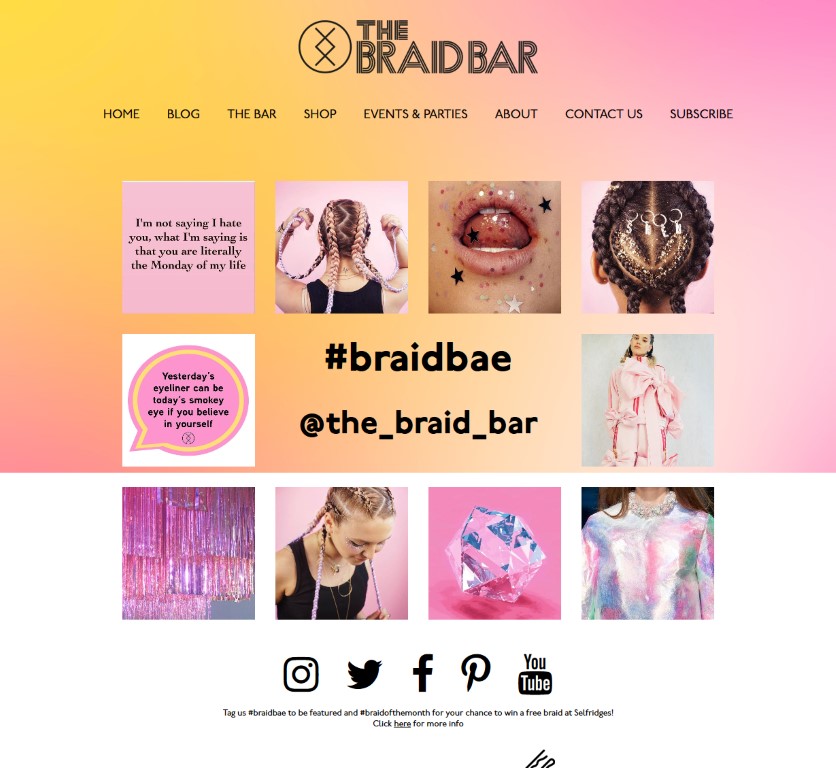
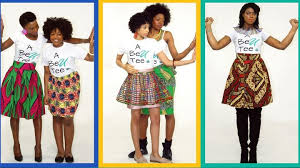
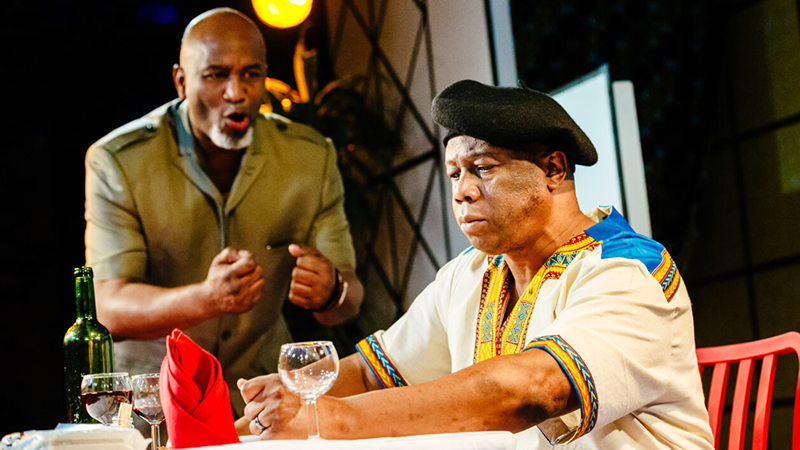
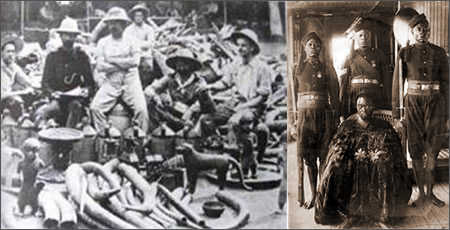
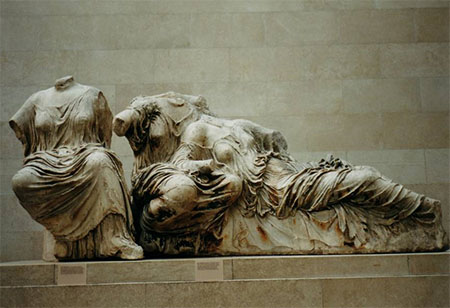
Get involved and help change our world